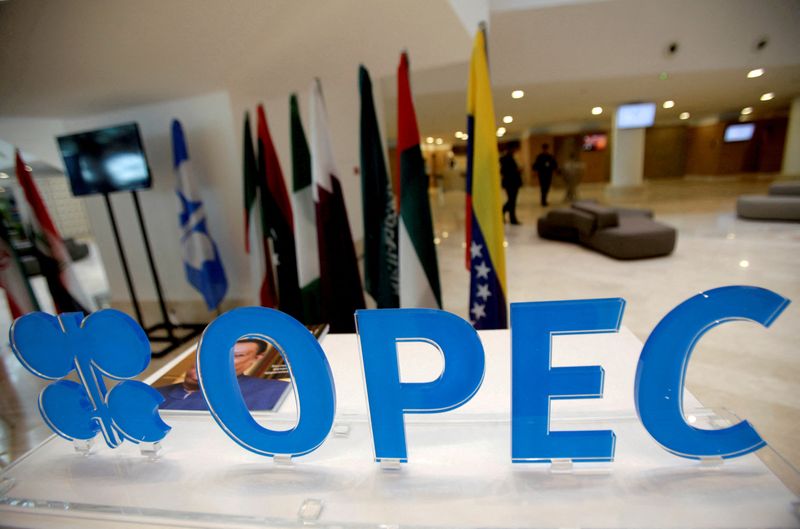By Alex Lawler
LONDON (Reuters) - OPEC on Monday raised its world oil demand forecast for the first quarter of 2022 and stuck to its timeline for a return to pre-pandemic levels of oil use, saying the Omicron coronavirus variant would have a mild and brief impact.
The upbeat view from the Organization of the Petroleum Exporting Countries comes as oil prices have recovered some of the slide seen when the variant emerged last month. Still, the World Health Organization says Omicron poses a "very high" global risk.
In a monthly report, OPEC said it expects world oil demand to average 99.13 million barrels per day (bpd) in the first quarter of 2022, up 1.11 million bpd from its forecast last month.
"Some of the recovery previously expected in the fourth quarter of 2021 has been shifted to the first quarter of 2022, followed by a more steady recovery throughout the second half of 2022," OPEC said in the report.
"Moreover, the impact of the new Omicron variant is projected to be mild and short-lived, as the world becomes better equipped to manage COVID-19 and its related challenges."
Oil dropped 10% on Nov. 26 when reports of the new variant emerged as traders feared a renewed hit to demand. But OPEC and its allies decided on Dec. 2 to stick to a planned production increase for January, a gamble that looks to have paid off as prices stabilise.
In the report, OPEC maintained its forecast that world oil demand will grow by 4.15 million bpd in 2022. This year's growth forecast was also kept unchanged.
World consumption is expected to surpass the 100 million bpd mark in the third quarter of 2022, in line with last month's forecast. On an annual basis according to OPEC, the world last used over 100 million bpd of oil in 2019.
Oil pared an earlier decline after the report was released and was trading close to $75 a barrel, up from a dip below $66 on Dec. 2.
HIGHER OPEC SUPPLY
The report also showed higher output from OPEC as the group and allies, known as OPEC+, gradually unwind record output cuts put in place last year.
At its Dec. 2 meeting, OPEC+ agreed to boost monthly output by 400,000 bpd in January, despite fears about the new variant.
The report showed OPEC output in November rose by 290,000 bpd to 27.72 million bpd led by increases in top two producers Saudi Arabia and Iraq and a recovery from outages in Nigeria.
Traders are watching for signs of a big rebound in U.S. shale supply as higher prices prompt more investment, which could prove a headwind to OPEC+ efforts to support the market.

But this month, OPEC left its prediction for growth in U.S. tight oil, another term for shale, largely steady at 600,000 bpd in 20222. The growth forecast for overall non-OPEC supply in 2022 was left unchanged.
For now, OPEC has room to raise output further from November's rate, the report indicates. OPEC said it expects the world to need 28.8 million bpd from its members in 2022, up 200,000 bpd from last month.